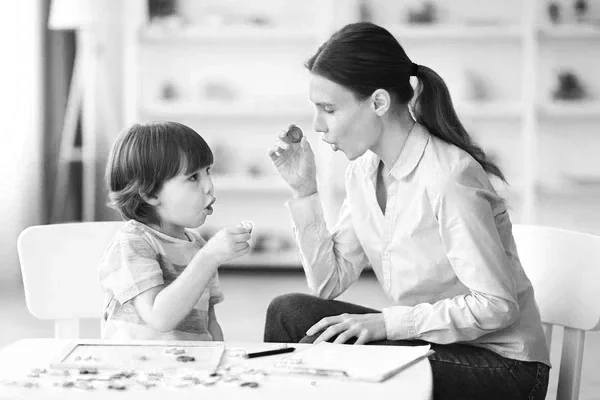Available Blogs
Caregiver, CEO: Steps to Foster Caregiver Resilience Parenthood and caregiving come without a guidebook, often thrusting us into roles that demand resilience, advocacy, and strength when facing a loved one’s diagnosis. This blog explores how caregivers can move from fear and confusion to empowered action by focusing on what can be controlled, finding meaning, and practicing self-renewal through reflection and supportive habits. By building resilience and managing emotional well-being, caregivers can transform hardship into purposeful action that benefits both themselves and their loved ones.
Primitive Reflexes and Sensory Processing: What Parents Need to Know- Primitive reflexes are automatic movements in infants that support early development, but when retained beyond infancy, they can contribute to sensory and motor challenges. This post explores the link between retained reflexes and Sensory Processing Disorder (SPD), highlighting how they affect coordination, attention, and emotional regulation. Learn how occupational therapy and targeted interventions can help children build stronger foundations for learning and well-being.
Gestures in Speech-Language Pathology- In speech-language pathology, communication extends far beyond spoken words—gestures play a vital role in helping individuals express meaning, emotions, and intent. This blog explores the different types of gestures, from descriptive and emotional to instrumental and emphatic, and how each supports language development and social connection. It also offers practical tips for parents to model and encourage gesture use at home to build communication confidence. Ultimately, gestures are powerful tools that bridge gaps, enhance understanding, and empower individuals to connect when words alone aren’t enough.
APTIH: Creating Spaces of Healing and Compassion through Biophilic Design- APTIH is redefining healing spaces through the thoughtful integration of biophilic design—bringing nature, light, and mindful details into every corner of its therapy and diagnostic environments. By blending natural materials, calming colors, and flexible, patient-centered furnishings, APTIH creates spaces that promote both physical and emotional well-being. This intentional design approach fosters calm, connection, and resilience for patients, caregivers, and staff alike, highlighting the profound healing power of nature in modern healthcare.
Fine Motor Skills and Activities of Daily Living- Fine motor skill development is essential for children to perform age-appropriate Activities of Daily Living (ADLs) such as dressing, feeding, and hygiene tasks with independence and confidence. These skills involve precise coordination of the small muscles in the hands and fingers, forming the foundation for everyday functional tasks at home, school, and in the community. This blog explores the connection between fine motor milestones and successful participation in ADLs, highlighting the role of occupational therapy in supporting children’s growth and self-sufficiency.
Backpack Awareness: Pack it Light, Wear it Right-Backpacks are a daily necessity for school-aged children, but improper fit and excessive weight can lead to serious health concerns. Research shows that overloaded or poorly worn backpacks contribute to back, neck, and shoulder pain, as well as long-term postural issues. This blog highlights key safety guidelines and ergonomic tips to help parents and caregivers choose and organize backpacks that support healthy development and prevent injury.
Helping Kids Thrive During the Holidays: OT Tips for a Joyful Season-The holiday season, while joyful, can be dysregulating for children due to changes in routine, heightened sensory input, and increased social demands. Pediatric occupational therapy strategies can help children feel more regulated, confident, and connected during this time. Practical tools such as visual schedules, sensory kits, and structured participation in traditions support emotional and sensory well-being. With thoughtful planning, families can create a more inclusive and enjoyable holiday experience for all children.
Finding My Voice: How Selective Mutism Shaped My Path as a Speech-Language-Pathologist- This heartfelt blog shares one individual’s journey with Selective Mutism a childhood anxiety disorder that makes speaking in certain situations feel impossible. Through therapy, support, and the compassionate guidance of a Speech-Language Pathologist (SLP), the author learned strategies to communicate and eventually found their voice. Inspired by that transformative experience, they chose to become an SLP themselves, dedicated to helping others overcome communication challenges with empathy and care. The story reminds parents to trust their instincts, early intervention and understanding can empower a child to speak with confidence and thrive.








